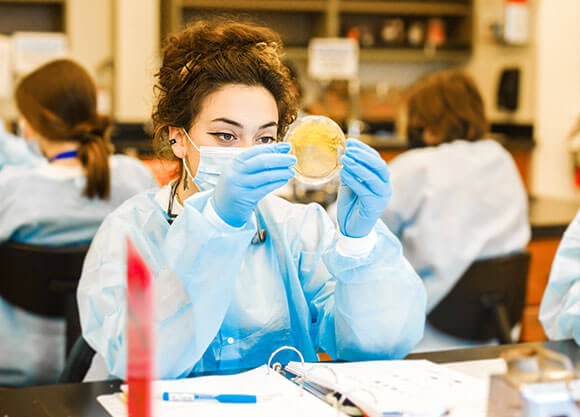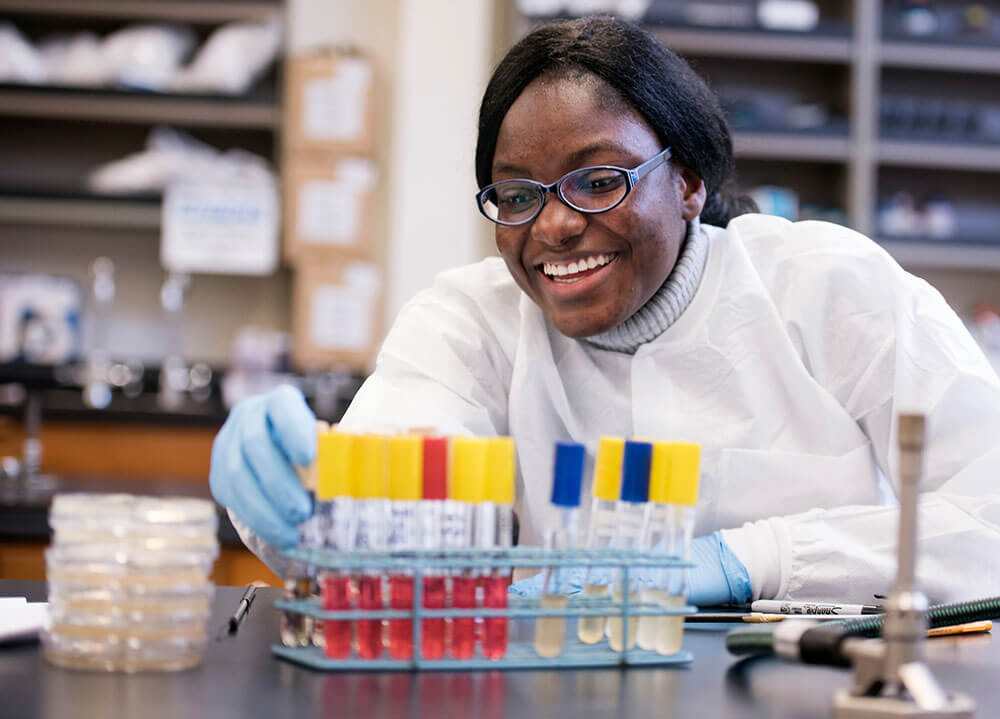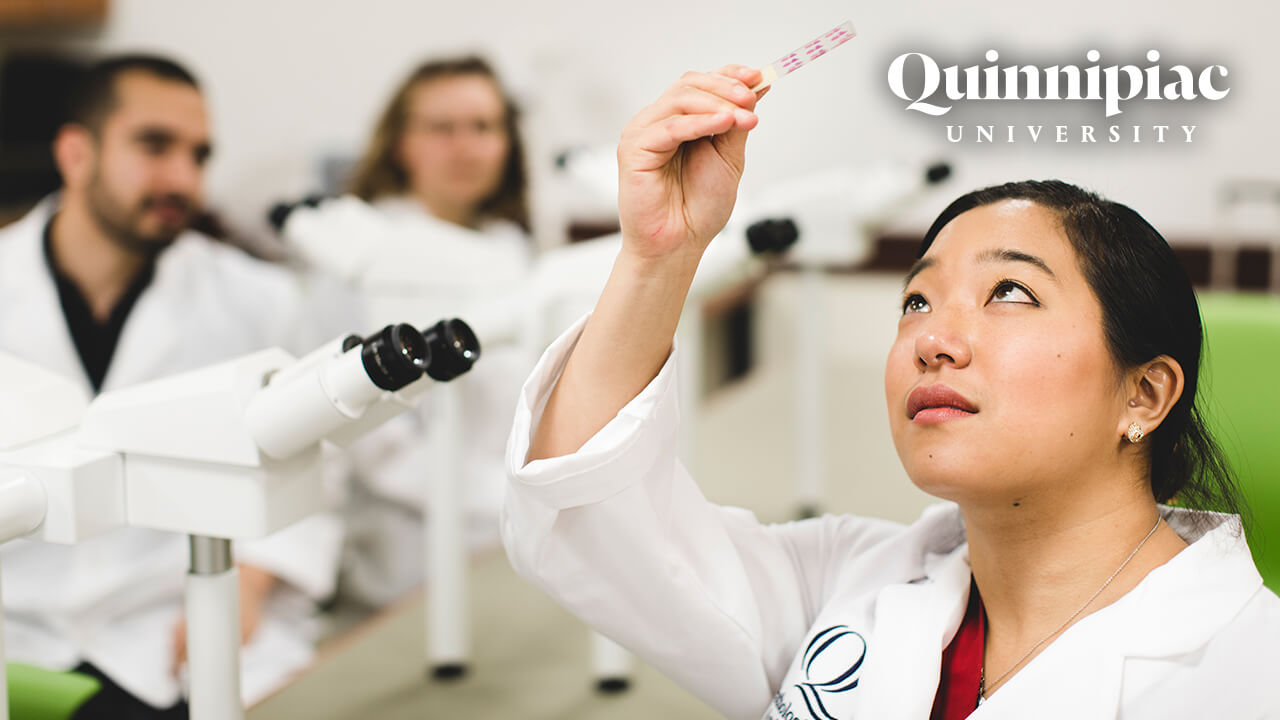Overview
Students will study microbiology from a medical perspective, using case studies as their guide. Topics covered will include a general introduction to medical microbiology, methods for identifying human microbial species, the diversity of microbial species, and microbes that cause infections in the various organ systems.
This will be followed by completing a class case study involving the diagnosis of bacterial, viral, fungal, or parasitic infection, which includes hands-on laboratory activities like culturing microbes and analyzing results. Participants can gain experience in lab skills, data analysis and understanding antibiotic resistance, and the program aims to provide an early taste of college-level science in an informal setting.
At the end of this program, you’ll walk away with:
-
Valuable hands-on laboratory skills and techniques commonly performed in clinical and research settings
-
Strategies for identifying microorganisms causing infectious diseases
-
Understanding of the beneficial microbes that make up the human microbiome and their importance in human health
Program Dates and Schedule
Session 1: July 20, 2026- July 24, 2026
Session 2: July 27, 2026 - July 31, 2026
Sample Daily Schedule: This is only a sample schedule and is subject to change due to a variety of factors.
| Time |
Activity |
Detail |
|
9 a.m.
|
Morning Preparation and Introduction to Laboratory Activity
|
Background lecture and set-up for morning activity
|
|
9:30 a.m.
|
Morning Laboratory Activity
|
Hands-on laboratory activity to advance your understanding of medical microbiology
|
|
11:30 a.m.
|
Morning Session Review and Debrief Meeting
|
Share results and review key information from the morning laboratory activity
|
|
Noon
|
Lunch Break
|
Time to eat and socialize
|
|
1 p.m.
|
Afternoon Preparation and Introduction to Laboratory Activity
|
Background lecture and set-up for afternoon activity
|
|
2 p.m.
|
Afternoon Laboratory Activity
|
Hands-on laboratory activity to advance your understanding of medical microbiology
|
|
4 p.m.
|
End-of-Day Review and Debrief Meeting
|
Share results and review key information from the afternoon activity
|
|
4:30 p.m.
|
Dismissal
|
Dismissal for commuter students, while overnight students have time to rest and relax
|
|
5 p.m.
|
Dinner
|
Dinner will be provided for those students with full room and board.
|
|
6 p.m.
|
Evening Activities (Group Recreation in our new Recreation and Wellness Center, Games, Guest Speakers, Independent and Group Enrichment Projects)
|
Evening is reserved for overnight students to have fun, experience our on-campus amenities, and bond with each other and staff through organized group enrichment activities.
|
|
10 p.m.
|
Quiet Time
|
|
Participation Requirements
Participants must be current high school students. Typically, participants are between the ages of 15 to 18 years of age at the start of the program.
Equipment and Materials
Quinnipiac University will provide all necessary equipment, including laptops, laboratory coats and safety goggles to students in this program. Students may bring their own laptops or other devices for use outside of program instruction periods or with the instructor's approval.
Program Costs
Option 1: 1-week overnight program from Sunday to Saturday. Includes full room and board as well as evening and weekend activities: $1,900
Option 2: 1-week on-campus commuter program from Monday-Friday, 9 a.m. to 4:30 p.m. Includes lunch daily: $1,600
All options include:
-
One week of faculty-designed and delivered programming, administered online or on campus with educational support staff and program materials
-
Technology and software support
-
A Quinnipiac T-shirt
-
A digital badge for use on social media, resumes or portfolios
-
Access to special Quinnipiac Admissions events
How to Register for Summer Programs
Students must declare if they plan to attend for either the residential (overnight) experience or the commuter experience at the time of registration. Registration closes on June 1, 2026.
Session 1: July 20-24, 2026
Register and Pay: Residential
Register and Pay: Commuter
Session 2: July 27-31, 2026
Register and Pay: Residential
Register and Pay: Commuter
Minimum Required Deposits
All students must submit a non-refundable $250 deposit at the time of registration to ensure a spot is reserved for 30 days. Payment is due within 30 days of applying to fully register for a program.
Session 1: July 20-24, 2026
Deposit Only: Residential
Deposit Only: Commuter
Session 2: July 27-31, 2026
Deposit Only: Residential
Deposit Only: Commuter
Payment Methods and Refund/Cancellation Policy
Discounts and Financial Aid
Partial financial support may be available for those who indicate the need for financial assistance in their online application. Financial support awards are based on a combination of financial need and academic merit.
We are pleased to offer a discount on all summer camps and experiences to current Quinnipiac employees, Quinnipiac alumni and employees of our corporate partners. Please contact summerprograms@qu.edu to request your discount code.
Frequently Asked Questions
Find the answers to some of the most frequently asked questions among prospective students and families regarding our summer programs. If you can't find an answer to your question, please contact us and we'd be happy to chat.
Review all FAQ's
Accommodations
Quinnipiac University complies with the Americans with Disabilities Act and Section 504 of the Rehabilitation Act as an institution of higher education. Students who have a current IEP or 504 plan are encouraged to share any accommodations or modifications they may require in order to access the fundamentals of a QU summer program or camp they plan to attend.
Students requesting disability-based accommodations should indicate this within the application as well as email summerprograms@qu.edu about any and all specific accommodation needs.
Rules & Regulations
Read Quinnipiac University’s Summer Camp and Pre-College Program Policies



